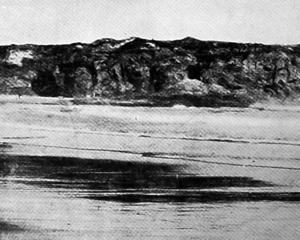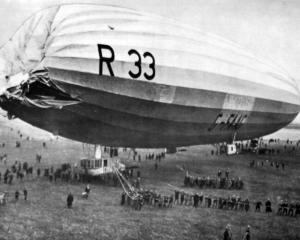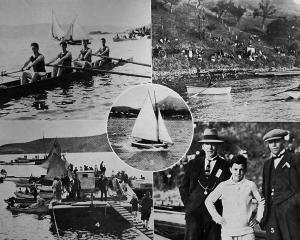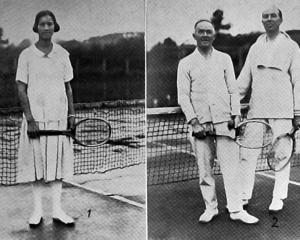There is very little probably in the way of the choice fruits of the earth which the soil and climate of Central Otago, with the assistance of irrigation, cannot contrive in combination to produce more than creditably.
This week a gratifying tribute to the quality of a number of varieties of apples, which were grown in the Teviot and Upper Clutha districts, has been received from London.
On behalf of the Cromwell Development Company and the Otago Expansion League a number of cases of choice varieties of apples grown in these districts were recently forwarded to the High Commissioner with a request that the fruit should be exhibited, and thereafter distributed in an appropriate manner.
A cable message from Mr Mackenzie this week indicates that the fruit not only arrived safely, but has provided a very highly admired display at the Royal Horticultural Society's Show, and has been awarded a signal distinction by the judges.
Such a compliment from such a source is extremely satisfactory, representing, as it does, an endorsement of opinion in our own community respecting the quality of the apples which this provincial district produces.
It is to be hoped, as doubtless will prove the case, that the success which has attended this little experiment of sending Home a sample of the products of our chief fruit-growing districts will lend encouragement to the growing of apples, especially of varieties that will admit of a successful transport across the seas, since a profitable market may be assured for them.
• The ploughing bee is still a popular method of giving a new settler a welcome in the Tokomairiro district.
The other day such a fixture was held in the Clarksville district, when 23 teams turned out to give Mr Wm. Allison, who had purchased a farm in that neighbourhood, a good start.
About 45 acres were turned over as the result of the day's work.
There were 101 horses at work (including some of the best Clydesdales in the district), and two experts assessed their value at £3000.
• The question of introducing the Scotch heather to New Zealand was discussed at the Acclimatisation Societies' Conference at Wellington on Wednesday.
Mr J. Cullen mentioned that the Tourist Department had planted a certain area of the National Park with specially imported seed, and that the results were promising.
Mr C. A. Whitney (Auckland) offered to contribute £5 for the collection of seed.
A delegate stated he understood that the Tourist Department would supply any society wanting it with seed.
A South Island delegate questioned the wisdom of introducing heather to New Zealand.
If such were done it would very likely overrun our mountain tops, and, being a hardy plant, would ultimately kill our own plants.
• Stoats and weasels, which were imported 30 to 40 years ago to extirpate the rabbits, are in turn becoming such a pest that Canterbury has sent a remit to the Acclimatisation Conference asking that the Government should impose a royalty on all stoats and weasels destroyed in other than rabbit-infested districts.
• On Monday a party of Timaru sports went to Bluecliffs, the object of the journey being a hare drive.
The party succeeded in bagging 80 hares (says the Timaru Post), which will be sent to Pareora Freezing Works, and will eventually be exported to England for the use of the soldiers at the front. - ODT, 7.8.1915.
• COPIES OF PICTURE AVAILABLE FROM ODT FRONT OFFICE, LOWER STUART ST, OR WWW.OTAGOIMAGES.CO.NZ












